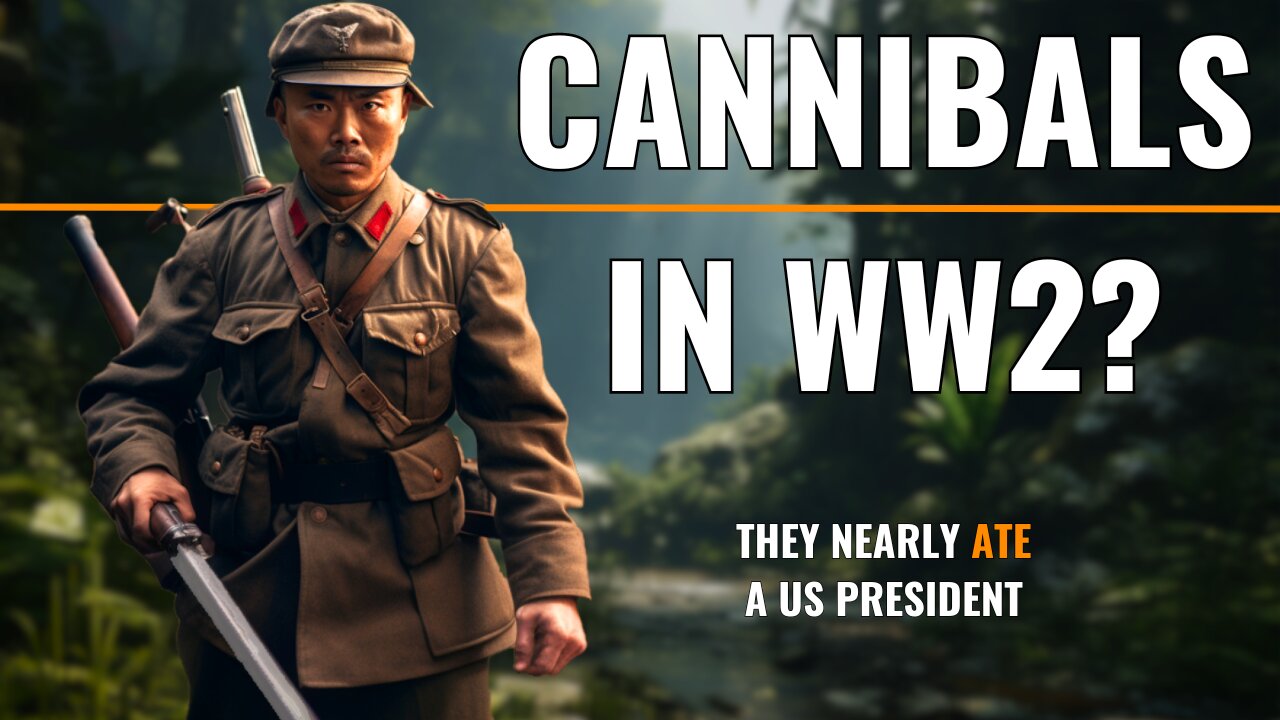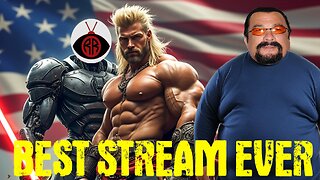Premium Only Content

Unknown Horrors of the Imperial Japanese Army During WW2
(An edited version for all audiences)
Ever heard of soldiers munching on other soldiers? Yeah, that happened.
________
To truly grasp the intensity of these horrors, we must first understand the ethos that drove many Japanese soldiers: Bushidō, a Japanese equivalent of a knight’s chivalric code.
It was as intense as it sounds. But it was also about a lot more than just swinging a katana and wearing armor.
Originating in the Edo period, which spanned from 1603 to 1868, Bushidō was a way of life, deeply ingrained in the samurai culture.
And while it might be tempting to draw parallels with European chivalry, let's not get too hasty. Sure, there were similarities, like a focus on honor and loyalty… to a degree.
But Bushidō had its own unique flavor, a blend of Confucianism, Shinto, and Zen Buddhism, giving it a depth and complexity that was distinctly Japanese, emphasizing values like sincerity, frugality, and loyalty above all else.
Loyalty especially, was paramount, even if not all samurai adhered to this principle… let alone all IJA members.
The pursuit of excellence in martial arts? That was expected of course. But it wasn't just about physical prowess. It was about the mind, strategy, discipline, and honor.
Honor until death. In fact, the concept of "seppuku" or ritual suicide was a testament to this. If a samurai felt they had lost their honor, they'd rather end their life than live in disgrace, ritualistically stabbing themselves in the stomach with the aim of disembowelment.
Ever heard of soldiers munching on other soldiers? Yeah, that happened.
________
To truly grasp the intensity of these horrors, we must first understand the ethos that drove many Japanese soldiers: Bushidō, a Japanese equivalent of a knight’s chivalric code.
It was as intense as it sounds. But it was also about a lot more than just swinging a katana and wearing armor.
Originating in the Edo period, which spanned from 1603 to 1868, Bushidō was a way of life, deeply ingrained in the samurai culture.
And while it might be tempting to draw parallels with European chivalry, let's not get too hasty. Sure, there were similarities, like a focus on honor and loyalty… to a degree.
But Bushidō had its own unique flavor, a blend of Confucianism, Shinto, and Zen Buddhism, giving it a depth and complexity that was distinctly Japanese, emphasizing values like sincerity, frugality, and loyalty above all else.
Loyalty especially, was paramount, even if not all samurai adhered to this principle… let alone all IJA members.
The pursuit of excellence in martial arts? That was expected of course. But it wasn't just about physical prowess. It was about the mind, strategy, discipline, and honor.
Honor until death. In fact, the concept of "seppuku" or ritual suicide was a testament to this. If a samurai felt they had lost their honor, they'd rather end their life than live in disgrace, ritualistically stabbing themselves in the stomach with the aim of disembowelment.
Ever heard of soldiers munching on other soldiers? Yeah, that happened.
________
To truly grasp the intensity of these horrors, we must first understand the ethos that drove many Japanese soldiers: Bushidō, a Japanese equivalent of a knight’s chivalric code.
It was as intense as it sounds. But it was also about a lot more than just swinging a katana and wearing armor.
Originating in the Edo period, which spanned from 1603 to 1868, Bushidō was a way of life, deeply ingrained in the samurai culture.
And while it might be tempting to draw parallels with European chivalry, let's not get too hasty. Sure, there were similarities, like a focus on honor and loyalty… to a degree.
But Bushidō had its own unique flavor, a blend of Confucianism, Shinto, and Zen Buddhism, giving it a depth and complexity that was distinctly Japanese, emphasizing values like sincerity, frugality, and loyalty above all else.
Loyalty especially, was paramount, even if not all samurai adhered to this principle… let alone all IJA members.
The pursuit of excellence in martial arts? That was expected of course. But it wasn't just about physical prowess. It was about the mind, strategy, discipline, and honor.
Honor until death. In fact, the concept of "seppuku" or ritual suicide was a testament to this. If a samurai felt they had lost their honor, they'd rather end their life than live in disgrace, ritualistically stabbing themselves in the stomach with the aim of disembowelment.
-
 57:22
57:22
barstoolsports
11 hours agoHardest Puzzle Breaks Brains | Surviving Barstool S4 Ep. 8
169K6 -
 9:02:15
9:02:15
Dr Disrespect
15 hours ago🔴LIVE - DR DISRESPECT - MARVEL RIVALS - RANKED
328K56 -
 1:00:46
1:00:46
The StoneZONE with Roger Stone
6 hours agoFake News Attack on Tulsi Gabbard! | The StoneZONE w/ Roger Stone
45.5K16 -
 2:24:08
2:24:08
WeAreChange
9 hours agoElon Musk & Donald Trump: The Emergency Halt That Saved Us
73.9K58 -
 1:13:11
1:13:11
Flyover Conservatives
1 day agoWARNING! Is Bitcoin CIA-Controlled? – The Shocking Reality of Digital Assets - Clay Clark | FOC Show
30.5K7 -
 2:00:37
2:00:37
Space Ice
12 hours agoSpace Ice & Redeye Try To Figure Out Seagal's Most Incoherent Movie
111K2 -
 1:00:36
1:00:36
PMG
1 day ago $9.55 earned"Santa Trump is Giving Us Hope - But Will Johnson Stand Strong?"
89.3K14 -
 54:30
54:30
LFA TV
1 day agoThe German Strongman’s Arrival Is Imminent | Trumpet Daily 12.18.24 7PM EST
68K4 -
 2:04:11
2:04:11
Melonie Mac
10 hours agoGo Boom Live Ep 32! Soul Reaver Remastered!
56.1K10 -
 39:11
39:11
Sarah Westall
7 hours agoDigital Slavery and Playing with Fire: Money, Banking, and the Federal Reserve w/ Tom DiLorenzo
65.6K8